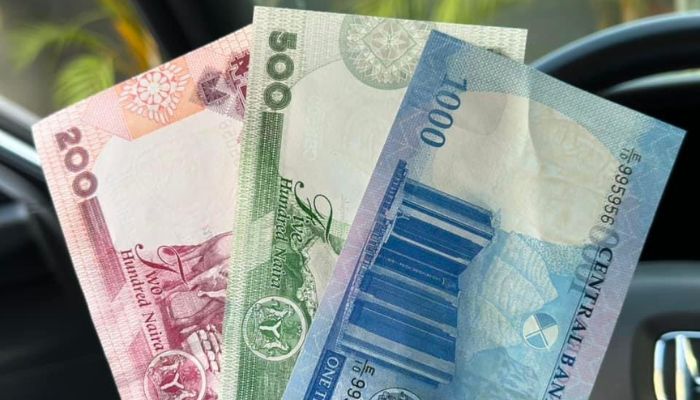Business
Naira devaluation inevitable, as foreign capital inflow drops, KPMG says

KPMG Nigeria has stated that the decline in foreign capital importation into Nigeria could lead to further devaluation of the Naira.
The professional firm offering Audit, Tax and Advisory services said the drop in foreign capital inflow will increase pressure on the exchange rate.
This was stated in a report titled; ‘Precipitous Decline in Foreign Capital in a Transition Period,’ which was released on Thursday.
KPMG Nigeria’s report followed the disclosure by the National Bureau of Statistics (NBS) that capital importation into Nigeria declined to $1.06 billion in the fourth quarter (Q4) of 2022 from $1.16 billion in Q3 2022.
Foreign capital importation depreciated by 8.53 per cent in the fourth quarter of last year, indicating a decline in foreign investors’ confidence in Nigeria’s economy.
Citing reasons for the decline in capital inflow, KPMG listed monetary tightening by global economies, low investor confidence as a result of the multiple foreign exchange regime, high inflation and interest rates.
Also, KPMG listed limited access to foreign exchange, high foreign exchange volatility, insecurity challenges, poor ratings by Moody’s and other credit ratings firms, high cost of doing business, as well as fiscal and monetary constraints.
READ ALSO:Unilever Nigeria puts up business for sale over naira devaluation
In the report, KPMG said: “Capital importation figures has now shown a persistent decline from $23.9 billion in 2019, $9.65 billion in 2020, $6.70 billion in 2021, and $5.32 billion in 2022.
“The importance of capital inflows in a country where foreign exchange is in high demand to stimulate economic activity is very clear.
“Accordingly, the continuous decline in foreign capital inflows in the presence of dwindling crude oil sales, and [a] generally poor and unstable export earnings, has slowed down foreign reserves accretion and widened the foreign exchange supply gap, thereby putting pressure on the exchange rate which has depreciated for the most part since 2022.
“Additionally, inadequate access to foreign exchange has constrained inputs for production leading to higher production costs, lower revenues and slower economic growth.”
The report further stated that Nigeria will struggle to increase its foreign capital inflow in the long term, “While substantial reforms may yet be done to reverse the trend of declining foreign capital in the long term, we believe that in the meantime, the country will struggle to attract increasing foreign capital for most of 2023 and struggle to keep the exchange rate from depreciating further, unless it is able to boost its crude oil and non-oil exports, especially now that oil prices are once again rising,” KPMG stated.
Join the conversation
Support Ripples Nigeria, hold up solutions journalism
Balanced, fearless journalism driven by data comes at huge financial costs.
As a media platform, we hold leadership accountable and will not trade the right to press freedom and free speech for a piece of cake.
If you like what we do, and are ready to uphold solutions journalism, kindly donate to the Ripples Nigeria cause.
Your support would help to ensure that citizens and institutions continue to have free access to credible and reliable information for societal development.






















